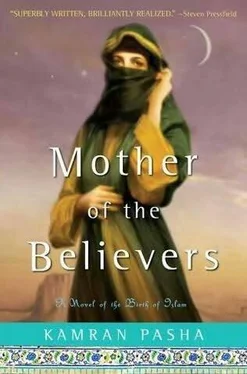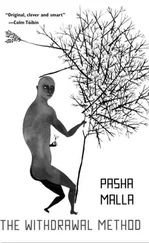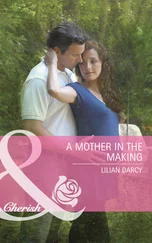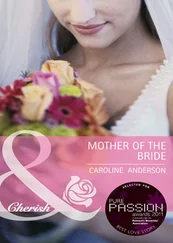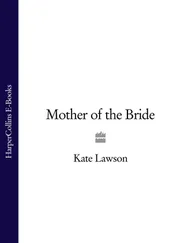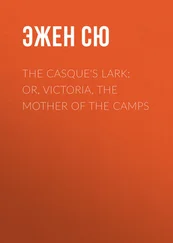“What are you doing?”
The girls blushed and mumbled terrified apologies, but I could see that he was not angry.
“We’re playing,” I said breathlessly. My friends had given me a brief and desperately needed respite from the serious responsibilities of my new role in the community. They had made me feel like the child I still was, and I did not want to go back to being a married woman and Mother of the Believers just yet.
The Messenger leaned down to see what I was holding. His eyes fell on the horse and he smiled, perhaps remembering how he had made Asma clap with joy when he had saved this little toy from the fire.
He took the horse in his hand and examined it, as if admiring the delicate Yemeni craftsmanship that made the little figure so lifelike.
“What game?” he asked simply.
I picked up the other farm figures that had been scattered on the floor-cows, camels, a lamb that had been covered in a thin layer of real wool-and showed them proudly to my husband.
“It’s called Solomon’s horses,” I said.
The Messenger’s smile made my heart quicken and a familiar quiver in my stomach reminded me that I was a woman and not just a girl, no matter how much I pretended otherwise.
The Prophet could see the look in my eye that always came with the surge of desire, and he winked playfully. And then he waved to the other girls, who were quivering in a corner, to come over.
“Solomon is my brother,” he said, getting on his hands and knees and grabbing one of the toy horses, which had been painted white. “Come, I will join you.”
My friends looked at him, startled. The Messenger of God wanted to play with them?
And then the Prophet lined up his white horse with my tiny black stallion. And he raced across the floor on his knees, daring me to catch up. I laughed and crawled after him, my horse moving swiftly to overtake his in the race.
The girls stared at us in disbelief. And then they laughed and joined in the play. Soon the Messenger’s steeds were being chased by a handful of small animals as Solomon’s horses galloped toward victory.
I beat the Prophet to the far wall of our tiny apartment, which was still furnished with the lambskin bedspread, along with the addition of a small wooden tray that served as our dining table. I leaped my toy stallion over the table as if it were flying like the winged horses of Paradise and raced toward the door.
And then I froze when I saw it was blocked by a towering figure, whose thick body eclipsed all the sunlight. Even before my eyes adjusted to make out his face, I knew that it could only be Umar ibn al-Khattab. He stood with his arms crossed across his powerful chest and looked down at us playing with the Messenger, his face twisted into a disapproving scowl.
My little friends shrieked and raced for the door again. Umar stepped aside and let them run past in terror. I scrambled up from the ground and ran to the corner where my head scarf lay discarded. I quickly covered my crimson hair under the midnight blue cloth as Umar bent down to speak to the Prophet, who was still on his knees, the toy in his hand.
“O Messenger of God, we need your counsel,” he said, and the gravity of his voice caused a change in my husband’s demeanor. He was again the leader of a desperate community that had been facing disease and starvation ever since seeking refuge in the oasis. I saw in an instant the weight of the world fall on his shoulders, and I suddenly understood why the Messenger took such delight in playing with innocent children. In a world where the shroud of death hung over his people daily, where any mistake he made could tear apart the fragile peace we had secured at such a terrible cost, the children made him forget the burdens of leadership for just a few wonderful moments.
The Messenger walked out grimly into the courtyard. I sat by the open door, looking out at the walled, dusty field that served as both house of worship and hall of assembly for the nascent community of believers. A crowd of prominent Muslims was gathered, and I could feel the cloud of tension that hung over the jamaat.
As the Messenger sat in a circle with his followers, Umar spoke of the current crisis.
“We have received troubling word from Mecca,” he said. “The Meccans have stolen the property of the Muhajirun and have sold it in the marketplace.”
There was angry murmuring at this news, until the mighty Hamza raised his hand for silence.
“They have used the profits to buy goods in Damascus,” Hamza said, his booming voice vibrating into the palm trunks that supported the walls. “The caravan returns from Syria in a fortnight.”
Umar pulled at his thick beard with rage.
“The Meccans grow fat off our belongings, while the believers struggle to find enough food to end the ache in their stomachs!”
The Messenger looked at the men, staring at each of them for a long moment as if reading the secret book of their hearts.
“And what counsel do you seek?” he asked quietly.
Umar stood up and began to pace around the circle, the nervous anger in his joints needing to be released.
“We seek to retake what belongs to our people!” he said. “The caravan is rightfully ours. We must seize it!”
I watched from the doorway of my apartment as the men nodded their heads, their voices rising in firm agreement.
But then I saw Uthman, the handsome son-in-law of the Prophet, rise, his face troubled and sad.
“The Meccans will not surrender their goods without a fight,” he said with a gentle voice. “Are we ready to wage war upon them?”
Ali, who sat at the Messenger’s feet, rose and faced Uthman.
“It is not a question of readiness,” he said, his mysterious green eyes unreadable as always. “Every man here is willing to fight and die for God and His Messenger. But we cannot do so without the permission of our Lord.”
With that, Ali looked at the Messenger. My husband met his glance and then glanced down at his hands without answering.
Abu Bakr touched the Prophet’s shoulder. When he spoke, his voice was calm and firm.
“For the past fourteen years, we have stood back and responded to every provocation with patience and forbearance,” my father said. “But our restraint has only emboldened the idol worshipers further. They have driven us from our homes. And now they seek to deprive us of our means to live. We do not seek war. But it is upon us.”
The Messenger looked into his friend’s eyes for a long moment. And then he turned to Hamza.
“What say you, Uncle?”
Hamza lifted his heavy bow from across his shoulders and laid it in the Messenger’s lap.
“There is a time for peace. And a time for war.”
When the Prophet said nothing in response, Hamza knelt before him and took his hands in his. “I know that you hate bloodshed. But if we do not stand firm now, the Meccans will see it as weakness. And their armies will be soon be on the doorsteps of Medina. It is time to fight.”
My husband finally rose to his feet.
“I will pray to my Lord for guidance.”
And without another word, the Prophet left the gathering of men and walked back to my apartment, closing the door behind me as I followed him in.
I saw the conflict on his face and it tore my heart in two. Muhammad, may God’s blessings and peace be upon him, was not a violent man. I had never seen him strike anyone, and his anger was rarely voiced and could be read only by the frown on his beautiful face. He told me once that when he was a child, he had been mocked by other boys for refusing to brawl with them in the streets. His gentleness had no place in the harsh desert, where men were taught that cruelty and masculinity were one and the same. Muhammad had lived for over fifty years according to a code of pacifism that was becoming more and more difficult to uphold.
Читать дальше
